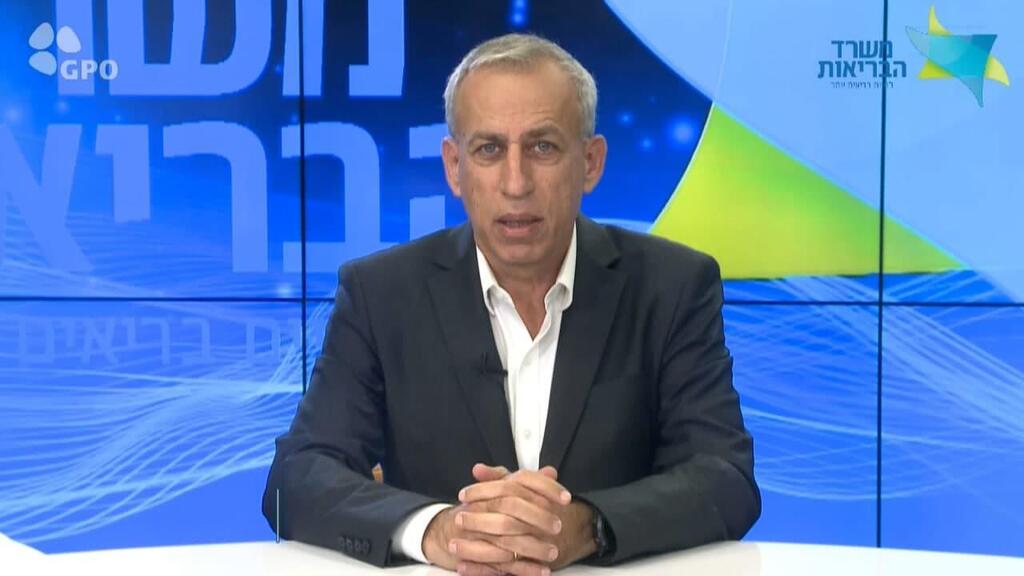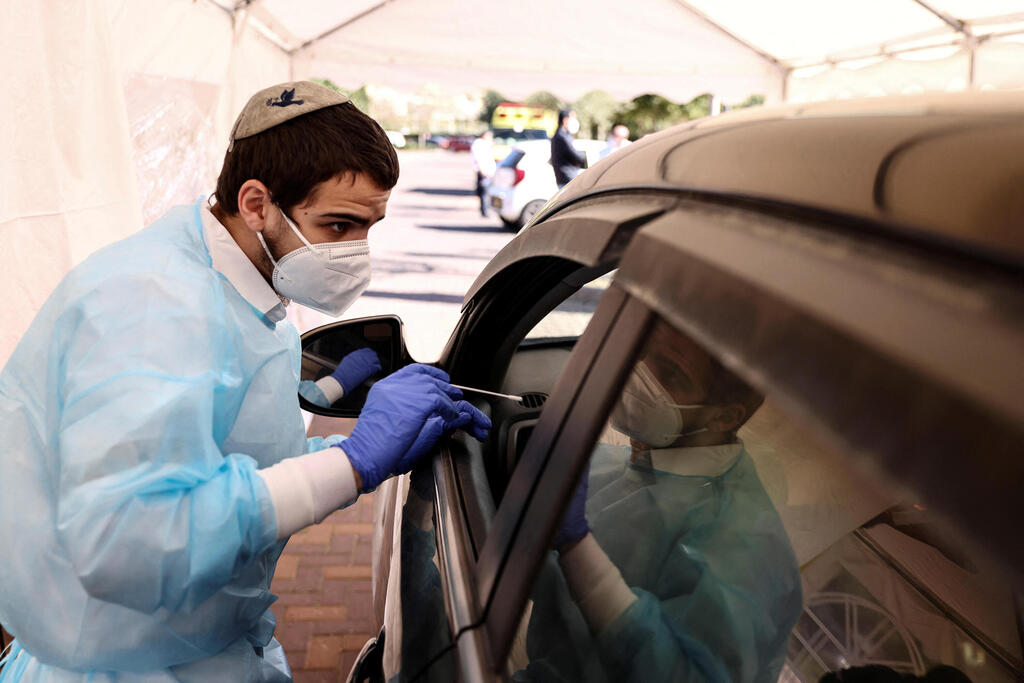Israel's recent surge in coronavirus cases has started slowing down, Health Ministry Director-General Prof. Nachman Ash told Ynet on Sunday.
"We can see that the rise [in cases] is slowing down, but I hope we'll see a more positive trend soon. For the time being, cases are still on the rise," he said.
This change of trend caps off three weeks of a steady increase in casesת believed to have been stoked by a new coronavirus strain which was detected in Israel — BA.2 — and the recent Jewish festival of Purim, which saw large gatherings nationwide.
"I believe we're going to see several thousand infections every day in the coming months, but it won't become another wave. We'll see the number fluctuate until they decline gradually, and this will become something we have to live with."
Prof. Ash stated that the Health Ministry was not considering enacting any new health control measures for the time being, but added that some steps, such as compulsory quarantine for unvaccinated individuals or virus testing in schools, could be weighed in case of another wave of infections.
He noted, however, that most new coronavirus cases were recorded among vaccinated individuals as the vaccine is less effective in preventing transmission.
Ash also said that he doesn't recommend extending the label of a second vaccine booster shot to the entire adult population since it is "much less effective and lasts for a shorter time" and we feel it is not right to recommend everyone to get vaccinated."
Israel currently recommends a second booster shot, and a fourth vaccine dose in total, to senior citizens and other various groups at risk of developing serious COVID-19 illness.
The findings of an Israeli study published earlier Sunday showed that senior citizens who received a second booster (fourth vaccine) of the Pfizer-BioNTech COVID-19 vaccination had a 78% lower mortality rate from the disease than those who got one only.
The country's largest healthcare provider, Clalit Health Services, said the 40-day study included more than half a million people aged 60 to 100.
Some 58% of participants had received a second booster - or two shots in addition to the basic two-shot regimen. The remainder had received only one booster. Researchers recorded 92 deaths among the first group and 232 deaths among the second, smaller group.



